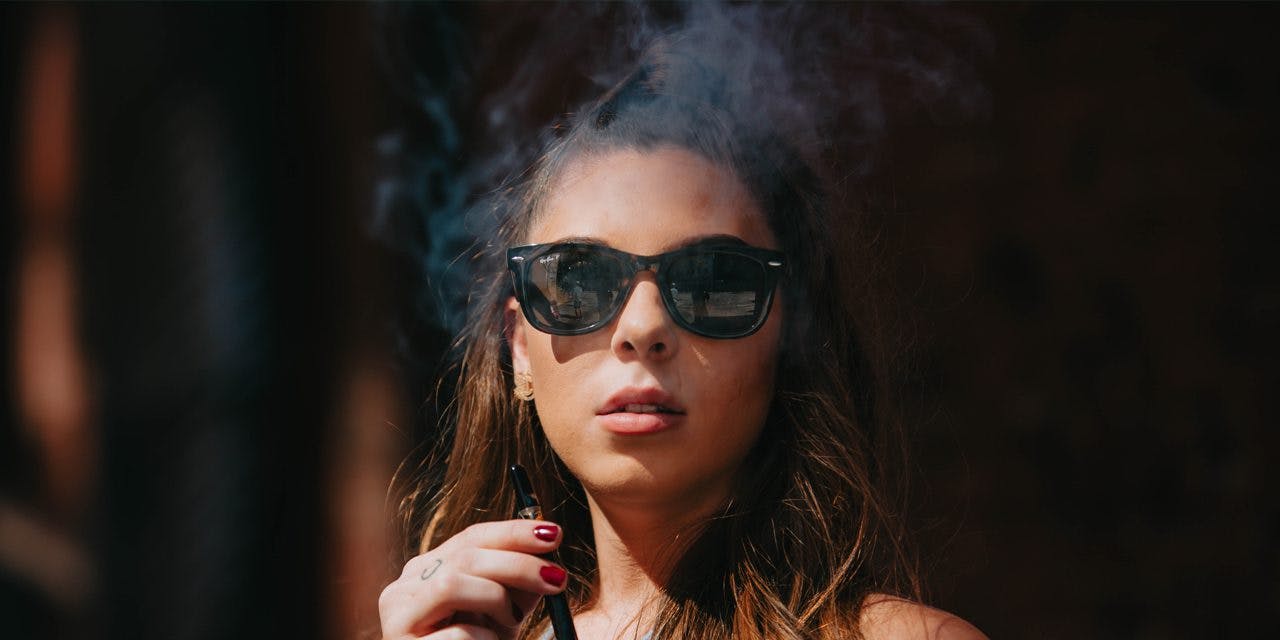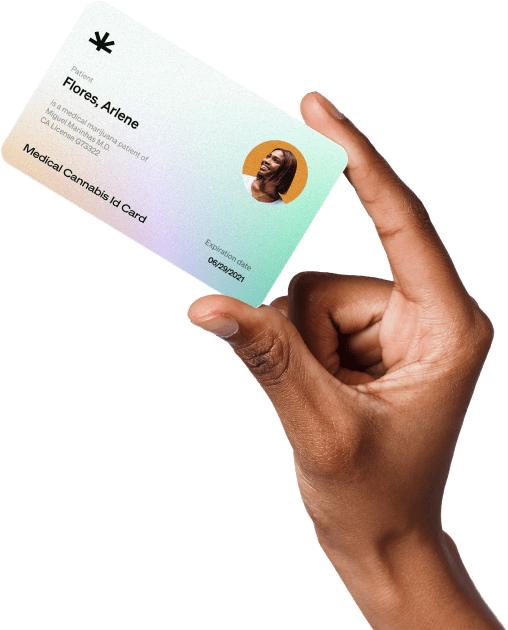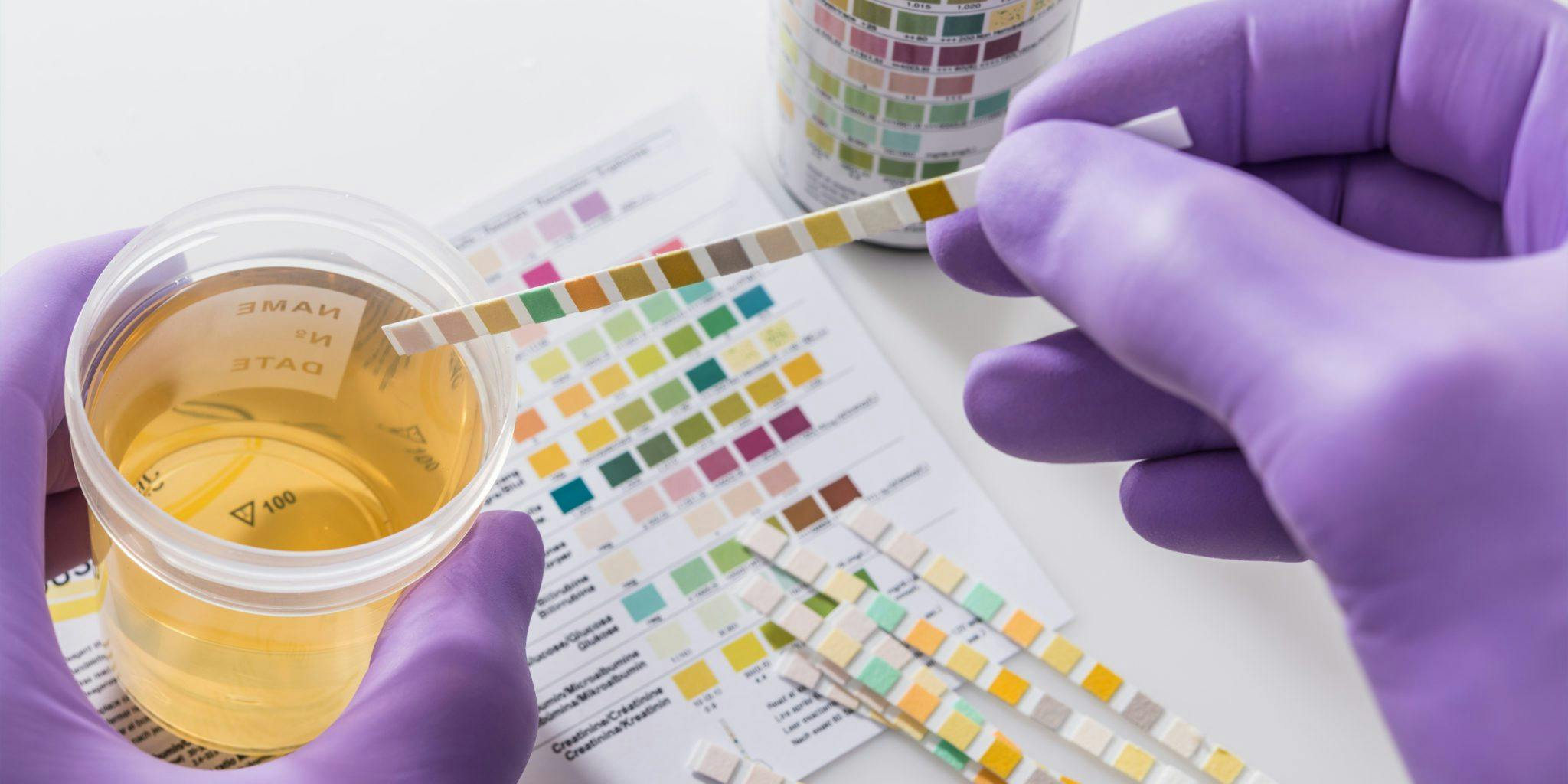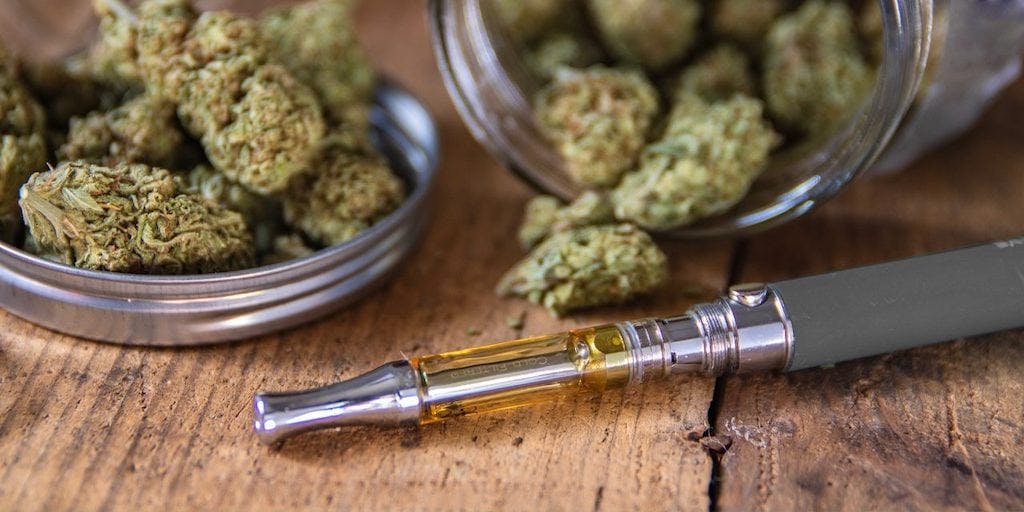What Happens When You Smoke CBD?

Article written by

Shanti RyleContent Writer
Content reviewed by

Dr. Lewis JasseyMedical Director - Pediatric Medicine
Cannabidiol (CBD) is one of the market’s most popular cannabis product types, especially for individuals seeking to harness the cannabis plant’s benefits without intoxication. While everything from gummies to CBD oils is on dispensary shelves, there’s reason to believe smoking high-CBD flower might be a powerful method to access the medical benefits of CBD.
We’ll explore what happens when you smoke CBD, the pros and cons, and why you might consider smoking as your delivery method of choice.
Get your medical marijuana card
Connect with a licensed physician online in minutes.
Can You Smoke CBD?
While most people associate smoking weed with the typical, high-THC cannabis flower, you can smoke CBD in many different ways. High-CBD flower can be smoked by itself in a pipe, rolled into a joint, or even vaporized from flower, concentrates, or CBD cartridges.
What Does Smoking CBD Feel Like?
One’s subjective experience of smoking CBD can vary from product to product, depending on each person’s metabolism, tolerance, and the endocannabinoid system (ECS).
Smoking high-CBD flowers with some THC will also feel different than dabbing CBD isolate (pure CBD) or ingesting CBD oil. It also depends largely on what other cannabinoids and terpenes are in the product you’re smoking. These compounds often work together to produce certain results — a phenomenon known as the entourage effect.
CBD won’t give you the same intoxication as THC, but it can provide a sense of calm and overall relaxation. Some users report that CBD can make them feel sleepy, happy, or even energized, depending on their dosage and route of administration. Low doses of CBD are thought to be stimulating, whereas higher doses (250 mg or more) can be sedating. Others anecdotally claim that CBD relieves inflammation or pain after smoking.
Download Free Guide to the ECS
Benefits and Side Effects
With its rise in popularity and legal status thanks to the 2018 Farm Bill, cannabis users in the United States are benefiting from an emerging host of research on CBD, including more information regarding smoking and other consumption methods. More research is needed, but we’re starting to get a clearer picture of CBD’s benefits.
Benefits of Smoking CBD
There’s concrete scientific evidence for CBD’s usefulness in addressing seizures resulting from epilepsy. So much evidence exists that the U.S. Food and Drug Administration (FDA) approved a CBD-based drug to treat epilepsy in children.
Other clinical studies have explored CBD’s potential in alleviating depression, soothing anxiety, treating chronic pain, and reducing insomnia. CBD has also been shown to help support healthy immune function. While more research is needed, thousands of patients have anecdotally reported the benefits of smoking CBD.
Among other delivery methods, CBD inhalation via smoking produces the fastest relief. This means the benefits of CBD can be felt within minutes, peaking in about 15-30 minutes when smoked or vaporized. The act of smoking hemp flower CBD from a joint may also assist those looking to quit smoking cigarettes, with one study finding that CBD might reverse cravings from tobacco withdrawals.
Possible Risks and Side Effects
When you use fire to burn plant material, it forms carcinogens introduced to your lungs. These carcinogens exist in tobacco and cannabis smoke and are one of the risks of smoking flower. Because smoking CBD involves inhaling smoke, patients should consider the risk of developing respiratory issues.
Luckily, there are fewer risks involved in smoking CBD compared to cigarettes, particularly in the case of more severe conditions like cancer. While excessive smoking may cause respiratory issues like bronchitis or excessive phlegm, no causal link has been discovered between smoking CBD and cancer.
A simple way to mitigate the risks of smoke-related issues is to vaporize, rather than smoke, your CBD, and this eliminates some of smoking’s inherent risk of inhaled toxins. A 2007 study found that using a vaporizer could lower detrimental respiratory symptoms in regular cannabis smokers.
Consuming CBD overall carries some drug-on-drug interactions risks, so be sure to confirm with your doctor whether smoking hemp will work in your existing medication regimen.
Smoking CBD vs. THC
CBD and THC are the most abundant cannabinoids found in marijuana and work to potentially treat many of the same symptoms, such as anxiety and inflammation. There are, of course, differences between the two in chemical structure and how they interact with the body’s ECS, but the main difference lies in intoxication.
CBD is often chosen for its non-psychoactive properties, but it is actually psychoactive and more accurately described as nonintoxicating. It still can affect the brain and body (which is why it can relax its users), but it does not produce the intoxicating effects people experience when they consume THC.
Thus, smoking CBD is similar to smoking THC but without the high. In fact, CBD can temper the psychoactive effects of THC and even improve its other therapeutic benefits while minimizing the unwanted negative effects of anxiety, rapid heartbeat, or dry eyes and mouth.
CBD is also, technically, legal to smoke, as long as you’re smoking CBD hemp flower. Most governments differentiate CBD hemp from marijuana based on the amount of THC in the plant. The Farm Bill of 2018 legalized industrial hemp in the U.S., defined as plants that contain no more than 0.3% THC per dry weight. U.S. citizens can legally buy industrial hemp flower in nearly every state, even online, so long as it meets the standards defined as industrial hemp.
Alternatively, you can purchase high-CBD cannabis flower from licensed dispensaries in legalized states, but these products often don’t meet the requirement for hemp. While they contain higher levels of CBD than many commercially available hemp products, these dispensary-sourced products may contain higher amounts of cannabinoids, including THC.
The Bottom Line
Smoking CBD is a viable and fast-acting method of enjoying the medicinal benefits of the cannabinoid that, outside of a few smoking-related risks, is worthy of consideration. Discuss your specific needs with a medical marijuana doctor to understand how to integrate smoking CBD into your healthcare toolkit.
Get Your Medical Card
Connect with a licensed physician online in minutes.
Frequently Asked Questions
Is smoking CBD safe?
We need more research into specific CBD consumption methods. Still, most evidence suggests that smoking CBD flower is generally safe outside of risks associated with smoking plant matter. CBD may also interact with some prescription medications, so discuss your health goals with your doctor.
Can you smoke CBD oil?
Patients can consume CBD through various methods, including vaporizing CBD oil via cartridges. Most CBD oils in tincture form are made for ingestion, but you can purchase CBD oil cartridges from a dispensary to vaporize.
While you can acquire CBD vape oil that contains less than 0.3% THC in most states, the FDA has yet to step in to regulate the CBD market. You may be better off purchasing CBD oil cartridges that have been lab tested from a licensed dispensary if you want to vaporize your CBD.
Does CBD make you high?
While CBD is psychoactive in that it interacts with the brain and nervous system, CBD is nonintoxicating. When you smoke CBD, you don’t experience a high, but many users have reported subtle calming or relaxing effects.



